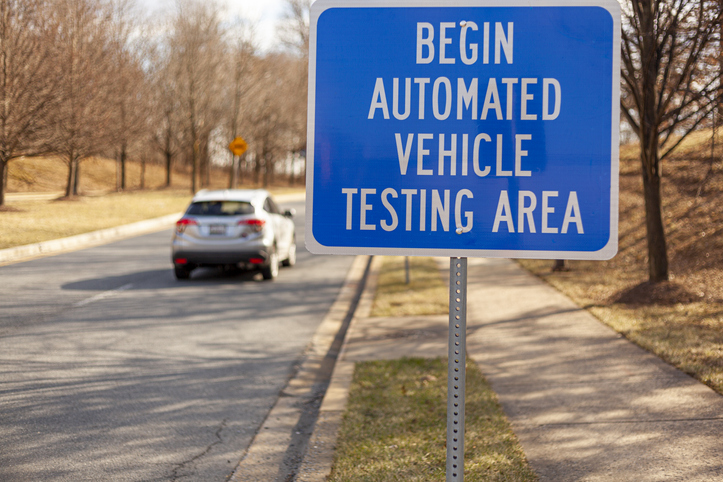Driverless Cars – who’s to blame?
The future legal framework has been mapped out by the Law Commissions of England, Scotland and Wales and proposes major legal changes for the driverless car era.
Many cars already have driver assistance functions, and these will develop in future so that a vehicle can fully drive itself, for at least part of the journey. This will have major legal consequences and will require changes in legislation, as recommended by the Law Commission of England and Wales and the Scottish Law Commission (together the “Law Commissions”).
A recent joint report by the Law Commissions has made 75 recommendations to safely enable the evolution to Automated Driving Systems (ADSs).
The report acknowledges that when automated driving is in use, a human can no longer be the principal focus of accountability for road safety. This has ‘profound legal consequences’ for self-driving vehicles and the report recommends that a new Automated Vehicle Act is implemented to establish new regulatory regimes and the liabilities of new legal ‘actors.’
The success of this new regime depends on a clear distinction being drawn between vehicles that assist drivers and those that are fully autonomous. It is important to minimise the risk of drivers thinking they are in self-drive cars and do not need to pay much attention, while they are actually only operating with a ‘driver assist’ function. This would be helped by the introduction of new safety standards to define criteria and measure the safety of automated driving, with the aim that automated driving should cause fewer deaths and injuries than human drivers. The report also recommends that it should be a criminal offence to market unauthorised vehicles, with driver assist features, as fully automated vehicles (AVs).
Pre-deployment Approval and Authorisation
The new regime would a involve an approval stage at international or domestic level and obtaining GB whole vehicle approval to market the vehicle. At a second stage a new regulator would authorise the ADS based on conformity with the new safety standards. Once authorised, the legal accountability shifts to the body that obtained the authorisation.
New Legal ‘Actors’
Recommendations divide liability between three legal ‘actors’:
The Authorised Self-Driving Entity (ASDE) would in most cases be the vehicle manufacturer or software developer who submits the AV for authorisation.
The ‘User-In-Charge’ – the human occupying the driving seat would not be expected to monitor the driving environment when automated driving is in use. They would not be responsible for dangerous driving or vehicle malfunctions. They would however remain responsible for transition demands and vehicle condition and safety e.g., ensuring child seat belts are worn.
Occupants of a vehicle may simply be passengers with no one occupying a driving seat. Therefore, where a ‘No User-In-Charge’ (NUIC) feature is engaged, the Law Commissions recommend that the vehicle is overseen by a licensed NUIC operator. This would be an organisation rather than an individual. They would not be expected to monitor the driving environment but must respond to alerts from the vehicle, although this may be done from a remote location. Licences would be granted by the new regulator.
Post deployment safety and regulation
A new in-use safety regulator would have continuous oversight throughout the lifetime of the AVs. They would work closely with the ASDEs to measure the safety of the AVs against the safety standards. Safety offences would incur regulatory sanctions rather than the criminal sanctions that might apply to human drivers. This would include warnings, compliance orders, civil penalties, or withdrawal or suspension of authorisation. The focus would be on creating a ‘no blame’ culture that would encourage openness and allow ‘actors’ to learn from mistakes.
Duty of Candour
Safety assurance still relies on the co-operation of the ASDE and NUIC to submit data and information to the regulator. Therefore, the Law Commissions recommend that they are subject to a ‘duty of candour’ when submitting a vehicle for authorisation/applying for a licence or responding to a request from a regulator. Furthermore, it would be a criminal offence to fail to provide information or make false or misleading disclosures. Senior managers could face prosecution for deliberate breaches of their duty of candour.
Next Steps
It is now a government decision whether to accept these far-reaching proposals, which are likely to have considerable cost implications for manufacturers and insurers. It is anticipated that there may be an interim response from government in the next 6 months, with a final response anticipated within a year. In the interim, car makers must be extremely clear about the difference between self-drive and driver-assist features.
The Law Commissions’ report is available here or for further advice please contact Charlotte Burroughs at [email protected].

